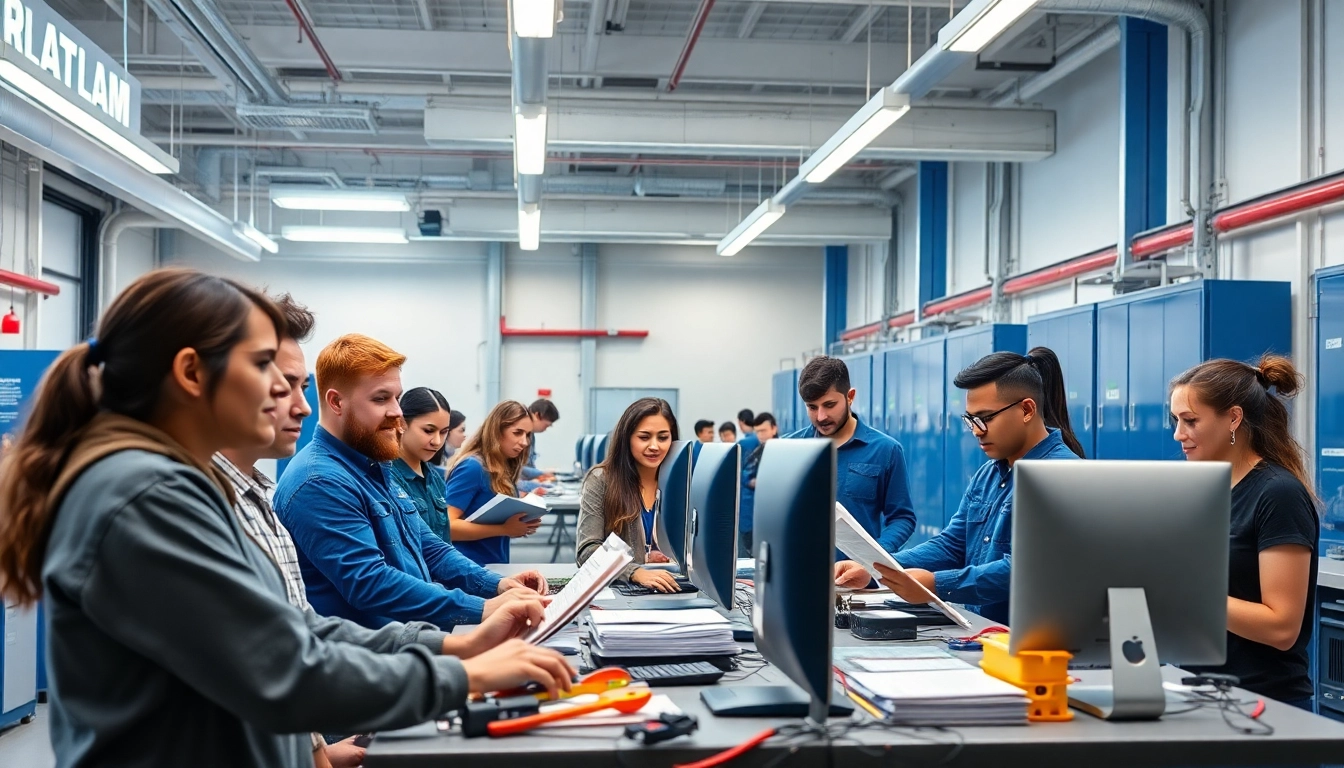Understanding Trade Schools in Oahu
What Are Trade Schools?
Trade schools, also known as vocational schools, are specialized institutions that provide tailored education and training in specific fields such as construction, electrical work, plumbing, and healthcare. Unlike traditional universities, trade schools focus on practical skills and knowledge that can be directly applied in the workforce. These institutions aim to equip students with the essential abilities to enter their chosen industries swiftly, making them a popular choice for those seeking hands-on training and immediate employment opportunities.
Benefits of Attending Trade Schools in Oahu
Attending a trade school in Oahu comes with numerous advantages:
- Shorter Program Duration: Programs at trade schools are typically shorter than degree programs at universities, allowing students to enter the workforce quicker.
- Cost-Effective Education: Tuition for trade schools is often lower than that of traditional colleges, making it an affordable option for many students.
- High Demand Skills: Trade school graduates gain skills that are in high demand locally, particularly in fields like construction and electrical work, offering excellent job prospects.
- Hands-On Learning: The curriculum is designed to be practical and hands-on, giving students real-world experience.
Types of Programs Offered
In Oahu, trade schools offer a variety of programs, including but not limited to:
- Construction Trades: Programs in carpentry, masonry, and plumbing.
- Electrical Training: Training for electricians focusing on installation, maintenance, and safety regulations.
- Healthcare Programs: Training for nursing assistants and other healthcare-related roles.
- Culinary Arts: Programs preparing students for careers in food preparation and hospitality.
Top Trade Schools in Oahu
Honolulu Community College Overview
Honolulu Community College is among the most recognized trade schools in Hawaii. It offers an array of vocational programs aimed at preparing students for the workforce. The college’s Construction & Trades academic programs, for example, focus on skill acquisition in high-demand areas. With small class sizes and experienced instructors, students benefit from personalized education, ensuring they are well-equipped for their careers.
Hawaiian Trades Academy Insights
The Hawaiian Trades Academy provides comprehensive training programs that cater specifically to Native Hawaiian culture while simultaneously focusing on essential trade skills. The curriculum integrates cultural enrichment with job readiness, creating a unique training environment that respects historical traditions while promoting modern vocational practices. The academy offers industry-relevant skills training by certified professionals, emphasizing practical knowledge and cultural grounding.
Other Notable Institutions
Aside from the above, several other institutions play significant roles in trade education within Oahu:
- Hawaii Community College: This institution focuses on diverse vocational programs that cater to various trade skills.
- Kauai Community College: Offers programs tailored to both local and state labor needs, providing critical skills to its students.
- Leeward Community College: Known for its comprehensive trade programs inclined towards technology and healthcare.
How to Choose the Right Trade School
Evaluating Program Offerings
When selecting a trade school, evaluating the program offerings is crucial. Students should consider the specific trade they wish to pursue and the track record of the school in that area. Are the programs accredited? Do they offer hands-on training, apprenticeships, or internships? This exploration can drastically impact a student’s preparedness for employment after graduation.
Assessing Faculty and Facilities
Another significant factor is the qualifications of the faculty and the quality of facilities. Students should look for schools that employ experienced instructors with backgrounds in the trades they teach. Modern and well-maintained facilities with updated tools and technology are vital for comprehensive training. Prospective students can visit campuses to assess these elements firsthand.
Understanding Costs and Financial Aid
The cost of education is always a major consideration. Trade school students should investigate tuition rates, additional fees, and living costs. Additionally, many trade schools offer financial aid options, including scholarships, grants, and loans. Understanding these financial components can help students make informed decisions about their educational investments.
Success Stories from Trade School Graduates
Alumni Achievements
Alumni of trade schools in Oahu often go on to have successful careers, proving the value of vocational education. Many graduates secure positions shortly after completing their programs, often at wages higher than the state average. Stories of local tradespeople who started as students at These institutions, showcasing their journey from classroom training to running successful businesses, are not uncommon.
Real-World Applications of Trade Skills
Graduates from trade schools often apply their skills immediately in the workforce. For instance, those completing electrical training may join local contractors, immediately impacting the community by assisting with essential electrical installations. The ripple effect of these skills enhances the local economy and provides essential services to residents.
Impact on Local Economy
Trade schools play a crucial role in strengthening the local economy. By supplying skilled workers to various industries, these institutions help satisfy market demands, reduce unemployment rates, and contribute to community development. Graduates often invest back into their local communities, either through their work or involvement in local initiatives, creating a cycle of economic growth and stability.
Future Trends in Trade Education
Innovations in Training and Curriculum
The landscape of trade education is continually evolving. Many institutes are integrating innovative technologies into their programs. For example, the use of virtual reality for hands-on training in fields like construction allows students to practice jobs and scenarios safely and cost-effectively. Regular curriculum updates ensure that training meets changing industry standards and techniques.
The Role of Technology in Trade Schools
Technology is reshaping how vocational education is delivered. E-learning platforms, online simulations, and digital resources are becoming more prevalent in trade school curriculums, allowing students flexibility in their learning. Moreover, technology in trades such as electrical engineering or plumbing enables students to engage with the latest industry-specific tools and software.
Adapting to Industry Needs in Oahu
Trade schools in Oahu are increasingly focused on meeting the local industry’s evolving needs. Institutions frequently collaborate with local businesses to create programs that equip students with relevant skills that match job market demands. This proactive approach ensures that graduates can seamlessly enter the workforce, filling crucial gaps in the local economy.










Leave a Reply